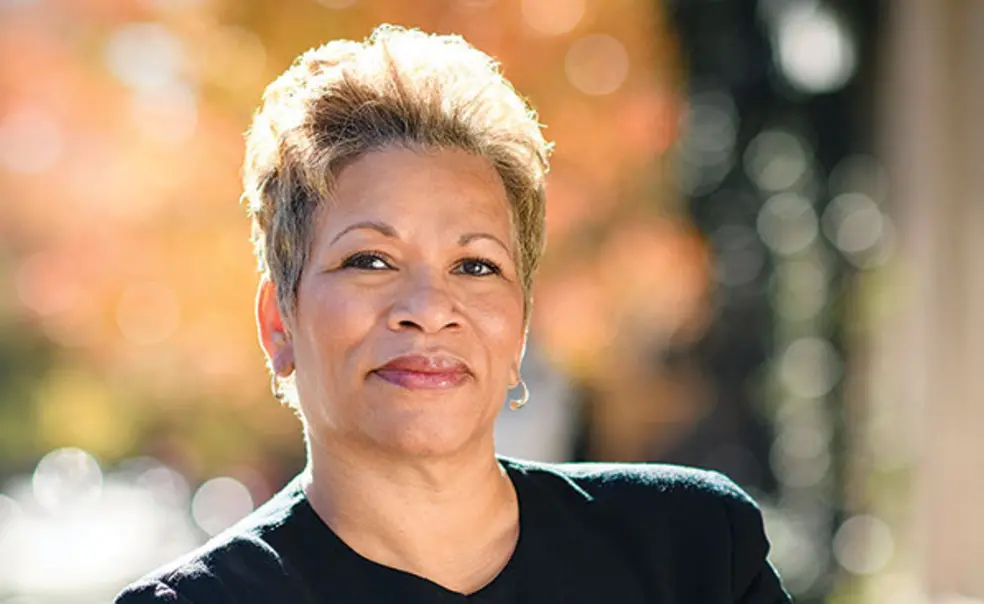Guidelines Seek to Balance Rights of Speakers, Protesters
‘Open-expression monitors’ designated
In the wake of clashes over controversial speakers on college campuses, the University has updated its guidelines and created a team of “open-expression monitors” designed to protect the rights of both speakers and protesters at campus events.
The University formed a “protest and demonstration group” more than two years ago as a resource for those on campus who invite speakers and for those who seek to protest, according to Rochelle Calhoun, vice president for campus life.
She said that after a last-minute cancellation by the Center for Jewish Life of a talk by the Israeli deputy foreign minister last November, the group decided it should share its findings more broadly with members of the University community and let them know that the guidelines could be used as a resource in the future. (That cancellation led to an apology by the center’s director and the national Hillel CEO, as well as the hosting of the event by Chabad House.)
Princeton would not endorse rescinding an offer to an invited speaker, said Vice President for Campus Life Rochelle Calhoun
Among the points outlined by Calhoun at the Sept. 24 CPUC meeting: Princeton would not endorse rescinding an offer to an invited speaker. “It is not good for the inviting group, it’s not good for the University, and often it gets used in ways that we don’t want to elevate the individual’s public statements,” she said.
Calhoun said University staff members designated as open-expression monitors have been attending events for a year when there is a concern that the University’s policy on freedom of expression may be challenged. The monitors also protect the audience’s rights “to hear, see, and engage with a speaker,” she said.
Calhoun said the University has no problem if protesters hold signs up during an event or turn their backs on the speaker, as long as they are not infringing upon the rights of others. When protesters are disruptive, she said, they will be notified that they violated University policy and removed from the venue if they continue. Student protesters who continue interrupting a speaker will be referred to the CPUC Judicial Committee, she said, adding that this has not been necessary for the last several years.
Administrators considered several potential scenarios relating to campus speakers that arose at other universities when creating Princeton’s guidelines, Calhoun said. Among them:
- If a speaker is invited and a campus group decides it is going to protest.
- If a speaker who was the target of a protest elsewhere is invited to Princeton.
- If a speaker who has previously made discriminatory remarks is invited.
“We wanted to create protocols that ensured the safety of the community, while encouraging and supporting free expression on campus,” said Calhoun.












2 Responses
Princeton Alumni Weekly
7 Years AgoFor the Record
Guidelines to protect campus free speech described in an Oct. 24 On the Campus story updated policies outlined in the University’s Rights, Rules, Responsibilities handbook. Protesters who interrupt a speaker and who continue after being notified they are in violation of University policy will be referred to the Judicial Committee of the Council of the Princeton University Community, not the Committee on Discipline.
A Sept. 24 letter from President Eisgruber ’83 and Dean of the Faculty Sanjeev Kulkarni stated that “the presumptive minimum penalty in any case of sexual harassment must be a one-year unpaid suspension from the faculty.” An Oct. 24 On the Campus story omitted the term “presumptive.” The letter was released the same day that Professor Sergio Verdú was informed of his dismissal for violating Princeton’s policies prohibiting consensual relations with students and requiring honesty and cooperation in University matters; a University spokesman said the timing was coincidental.
Norman Ravitch *62
7 Years AgoLet the Storms Rage
If the leadership of Princeton were really wise, they would simply uphold the First Amendment. Let the storms rage; let the uncivil audiences damn themselves with their uncivil behaviors. Speakers need to know they have the right to speak and the audience has the right to approve or disapprove. If there is a riot, yes, the police should be called. Otherwise the University should not be in the business of Political Correctness. I remember a time around 1959 when George Kennan spoke disparagingly of Woodrow Wilson -- AT THE WOODROW WILSON SCHOOL! of all places. I loved it!